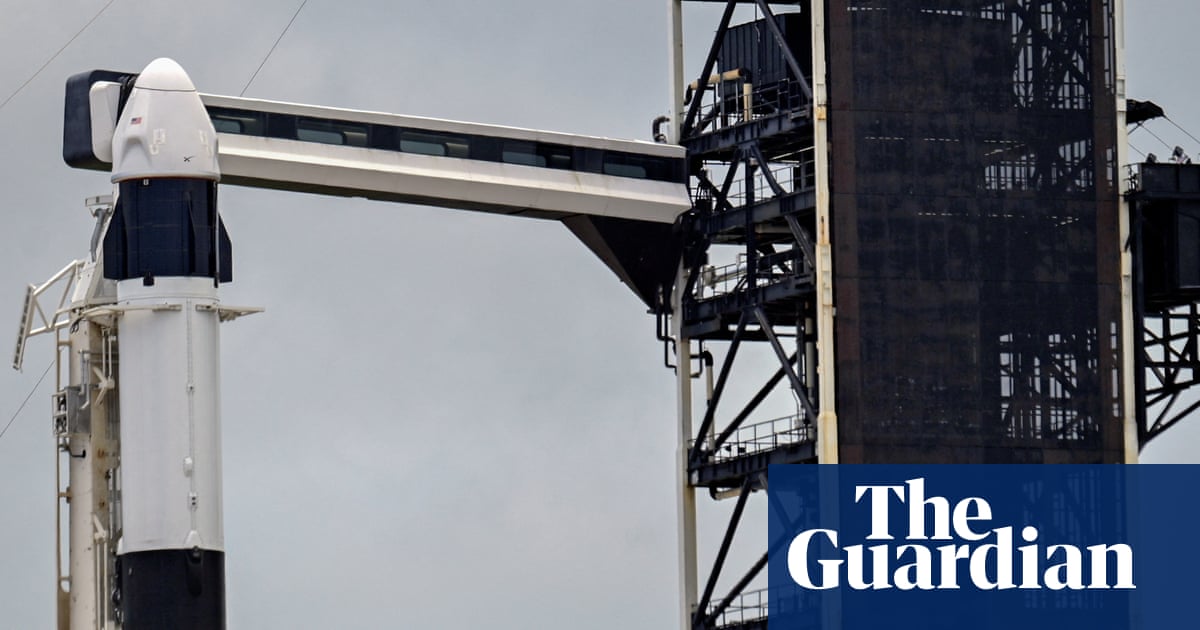A chartered spaceflight for India, Poland and Hungary’s first astronauts in decades has been delayed indefinitely because of leak concerns at theInternational Space Station.
The National Aeronautics and Space Administration (Nasa)said Thursday that it had postponed the Axiom Mission 4 to the ISS to monitor the cabin pressure on the Russian side of the orbiting lab before accepting visitors. Officials stressed that the seven astronauts currently at the space station are safe and that other operations up there would not be affected.
Space agency Roscosmos said on Friday that a leak on the Russian segment had been repaired, the Interfax news agency reported. A new launch date has not been set.
SpaceX was supposed to launch four private astronauts this week on a 14-day space station mission from Cape Canaveral, Florida, but bad weather and SpaceX rocket trouble delayed the flight. Then the station leak issue cropped up.
The three Russians aboard the space station recently inspected the inside walls of the aging Zvezda service module, which launched in 2000, as well as a connecting tunnel. They sealed some areas and measured the current leak rate.
“Following this effort, the segment now is holding pressure,”Nasasaid in an online update.
The private mission’s delay provides extra time for Nasa and the Russian Space Agency “to evaluate the situation” and determine whether more repairs are needed.
The chartered flight was arranged by the Houston company Axiom Space, and was to be Axiom’s fourth trip to the space station with paying customers since 2022.
“This is the right thing to do,” said Kam Ghaffarian, Axiom Space’s executive chairman in a written statement. “We will continue to work with all of our partners to finalize a new launch date.”
The four astronauts – led by retired Nasa astronaut Peggy Whitson, now an Axiom Space employee – will remain in quarantine in Florida. Also scheduled to be aboard the mission is Shubhanshu Shukla, an Indian Air Force pilot and one of four astronauts-in-training picked by the Indian Space Research Organization to fly on India’s own debut crewed mission, the Gaganyaan mission planned for 2027. Shukla, 39, will be the first astronaut to go to the ISS from India’s astronaut corps.
Tibor Kapu is slated to join the Axiom mission from Hungary; Sławosz Uznański-Wiśniewski from Poland. The former could be the third person born in Hungary to ever visit space. The latter is set to become the second person from Poland to do so. The previous Polish astronaut, a general, took part of a Soviet mission in 1978.
Sign up toTechScape
A weekly dive in to how technology is shaping our lives
after newsletter promotion
The Russian Space Agency has been dealing with cracks and air leaks in its station compartments for more than five years – “a top safety risk,” according to Nasa’s Office of Inspector General. Recent repairs resulted in what Nasa calls “a new pressure signature”. Additional details were not immediately available.
Nasa wants to keep the space station operating until 2030 before dropping it out of orbit. The goal is to replace it with a number of privately owned stations; Axiom Space is among the companies looking to fill the gap.
The US sends its astronauts to the ISS aboard SpaceX spacecraft, but Elon Musk, CEO of the rocket maker, posted on X early Friday morning that the massive orbital base should be decommissioned sooner than 2039.
“There are potentially serious concerns about the long-term safety of the Space Station. Some parts of it are simply getting too old and obviously that risk grows over time,” Musk wrote. “Even though SpaceX earns billions of dollars from transporting astronauts & cargo to the ISS, I nonetheless would like to go on record recommending that it be de-orbited within 2 years.”
